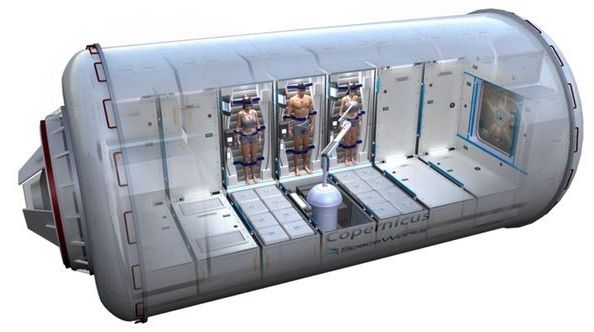Deep space travel is circumscribed by an interactive conflict. For those that may want to make extended space journeys, the distances are remarkably great, and our spaceships are slow. These combine to make the trip times exceedingly long. When one attempts considering interstellar transit, you quickly realize that a normal human life span prevents an adult from ever even returning to Earth. Yet even for missions to nearby Mars travel times are projected to take about eight months one-way.
We cannot do anything about the physical distances, nor can we expect much more performance out of current chemical rockets for projected near-term transports within the solar system. While there are projected improvements in velocity in the future through introduction of fission propulsion, fusion-drive rockets, or other exotic space transport engines, space travel will continue to require long transit times. Even if one is able to exploit velocity-enhancing tricks like gravity-assist planetary flybys, deep space trips to, say, mineral-rich asteroids in the main belt will still be measured in years.
So, for transporting people around our solar system, the fundamental question has and continues to be whether anything practical can be done about adjusting the impacts for the humans on board. More precisely, are there practical near-term methods to improve space transport human system design factors that could allow us to create more cost-efficient spaceships and improve the safety to passengers and crew during these long voyages?
